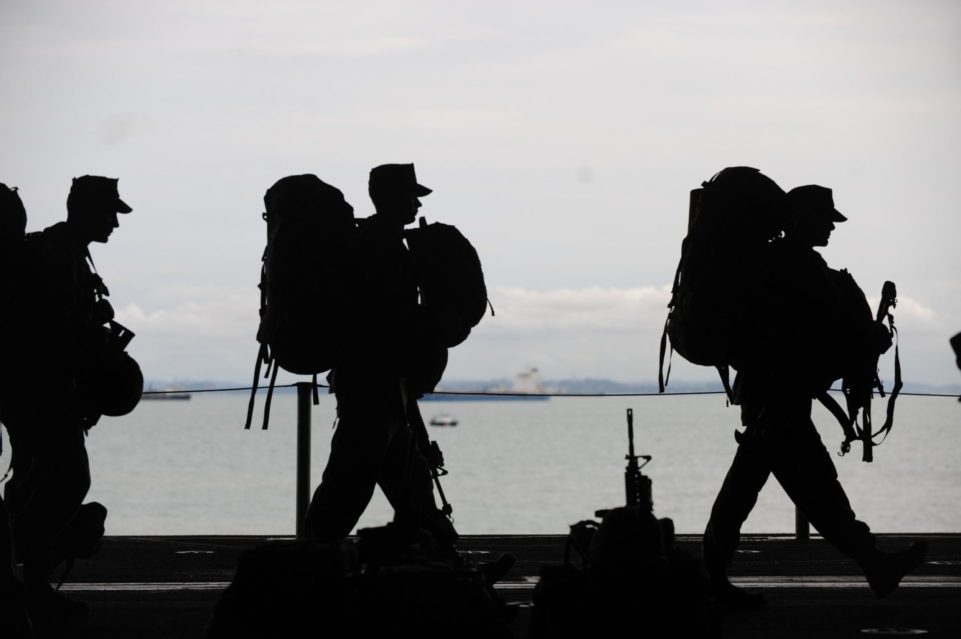What is the National Defense Authorization Act or NDAA?
March 20, 2023 | 4 minutes read
Not many sentences begin with, “Congress always agrees on…” except when talking about the NDAA. The NDAA, or National Defense Authorization Act, is a law that’s passed every year by the United States government to set policies and budgets for the Department of Defense to ensure that the military has the resources it needs.
About The NDAA
The act was first passed in 1961 with provisions that set the proper tone to establish the severity of aiding the U.S. military during the cold war. The outcome of the war without the NDAA passing would have drastically changed since the act provided well-trained soldiers in defense of the U.S. Not only would the outcome have changed, it would have impacted the U.S.’s ideology, economics, and geopolitical stance on this day.

The NDAA covers an extensive range of topics in regard to national security and defense, including military personnel, procurements and acquisitions, military justice, and national security. Today, let’s specifically take a look at the “Prohibited Manufacturers” portion of the NDAA. When the provision to create the Prohibited Manufacturers list in the National Defense Authorization Act for Fiscal Year 2019 was passed, it was part of a broader effort to aid national security by making sure that the US government only does business with trustworthy companies.
Technology is a crucial part of any security, especially in the government. The NDAA recognizes its strength and deems it necessary to set guidelines for the what, where, and who of technology being used by government agencies or any contractors and suppliers that may work with the U.S. government. The Prohibited Manufacturers list is one of many that they must comply with in order to work with the government, but what does the Prohibited Manufacturers list consist of?
The Prohibited Manufacturers List
The Prohibited Manufacturers list introduced prohibitions of using any equipment that is manufactured by certain companies and manufacturers. This list is created by the Department of Defense, and it includes companies that are believed to pose a threat to national security. There are many reasons why a company might be on the Prohibited Manufacturers list. They may have been caught engaging in illegal activities, or they might have ties to foreign governments that are hostile to the US.
For example, there are concerns about specific companies that may have close ties with the Chinese government, and the use of their equipment could lead to a compromise in the U.S. government systems. Taking into consideration the history behind the relationship between the U.S. and China, this action is believed to be in the best interest of the U.S. government.
One of the companies listed in the Prohibited Manufacturers list is Huawei Technologies Company. Huawei Technologies is a well-known Chinese multinational company that specializes in telecommunication equipment.
You may be asking, “Why did they end up on the Prohibited Manufacturers list?”. The founder, Ren Zhengfei, was an officer in the People’s Liberation Army (PLA), which is the military of the People’s Republic of China. The PLA had an essential role in the Chinese Communist Party (CCP) coming into power and has close ties to this day.
Having this close of a relationship with the Chinese government raises a brow for the U.S. government when considering using their equipment to hold and secure sensitive data. The fact that Huawei Technologies had allegedly conducted business with Iran and other sanctioned countries is yet another reason for placing Huawei Technologies on the Prohibited Manufacturers list.
Huawei Technologies and any other company that is believed to be involved in any action that can be a threat to U.S. national security are placed on the Prohibited Manufacturers list. Once on the list, the use of the aforementioned company’s products, components, or services is prohibited. Failure to comply results in high penalties and consequences.
It would not be surprising to have audits conducted, or investigations take place to ensure concerning agencies are complying. If it is concluded that the compliance is negligent, they can face legal action and high penalties.
Conclusion
Adding a company to the Prohibited Manufacturers list is a thorough process, and it is conducted in a very serious manner. The companies added to the list can face financial losses and criminal charges. The process of investigating a company to determine if it should be added to the NDAA Prohibited Manufacturers list involves many intricate steps after the initial triggering cue of the company being accused.

Once the Department of Defense catches wind of the company posing a threat from trusted sources, they immediately conduct a thorough investigation, including the company’s past, all their records, and ownership structure. Overall, it is a rigorous process created to protect the U.S.